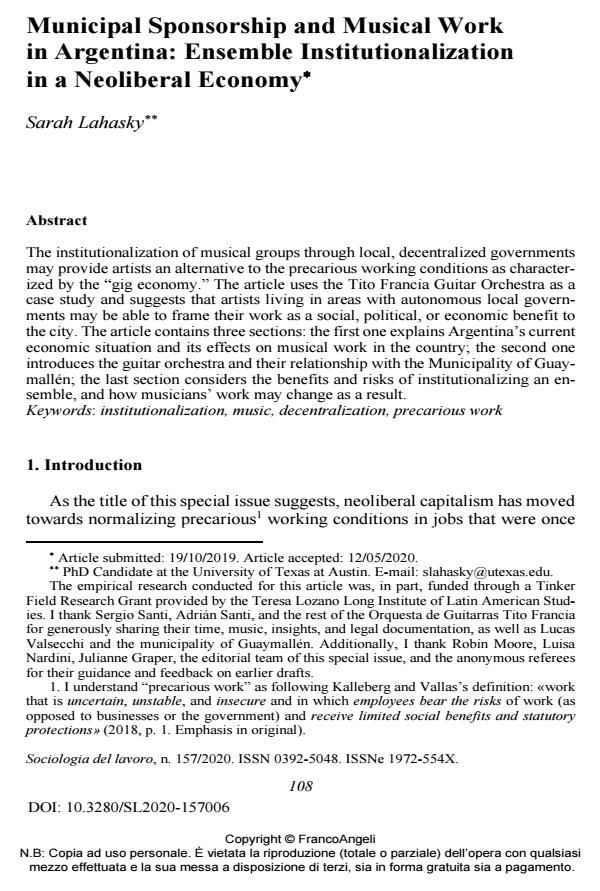Municipal Sponsorship and Musical Work in Argentina: Ensemble Institutionalization in a Neoliberal Economy
Journal title SOCIOLOGIA DEL LAVORO
Author/s Sarah Lahasky
Publishing Year 2020 Issue 2020/157
Language English Pages 17 P. 108-124 File size 234 KB
DOI 10.3280/SL2020-157006
DOI is like a bar code for intellectual property: to have more infomation
click here
Below, you can see the article first page
If you want to buy this article in PDF format, you can do it, following the instructions to buy download credits

FrancoAngeli is member of Publishers International Linking Association, Inc (PILA), a not-for-profit association which run the CrossRef service enabling links to and from online scholarly content.
The institutionalization of musical groups through local, decentralized govern-ments may provide artists an alternative to the precarious working conditions as characterized by the gig economy. The article uses the Tito Francia Guitar Or-chestra as a case study and suggests that artists living in areas with autonomous local governments may be able to frame their work as a social, political, or eco-nomic benefit to the city. The article contains three sections: the first one explains Argentina’s current economic situation and its effects on musical work in the country; the second one introduces the guitar orchestra and their relationship with the Municipality of Guaymallén; the last section considers the benefits and risks of institutionalizing an ensemble, and how musicians’ work may change as a result.
Keywords: Institutionalization, music, decentralization, precarious work
Sarah Lahasky, Municipal Sponsorship and Musical Work in Argentina: Ensemble Institutionalization in a Neoliberal Economy in "SOCIOLOGIA DEL LAVORO " 157/2020, pp 108-124, DOI: 10.3280/SL2020-157006